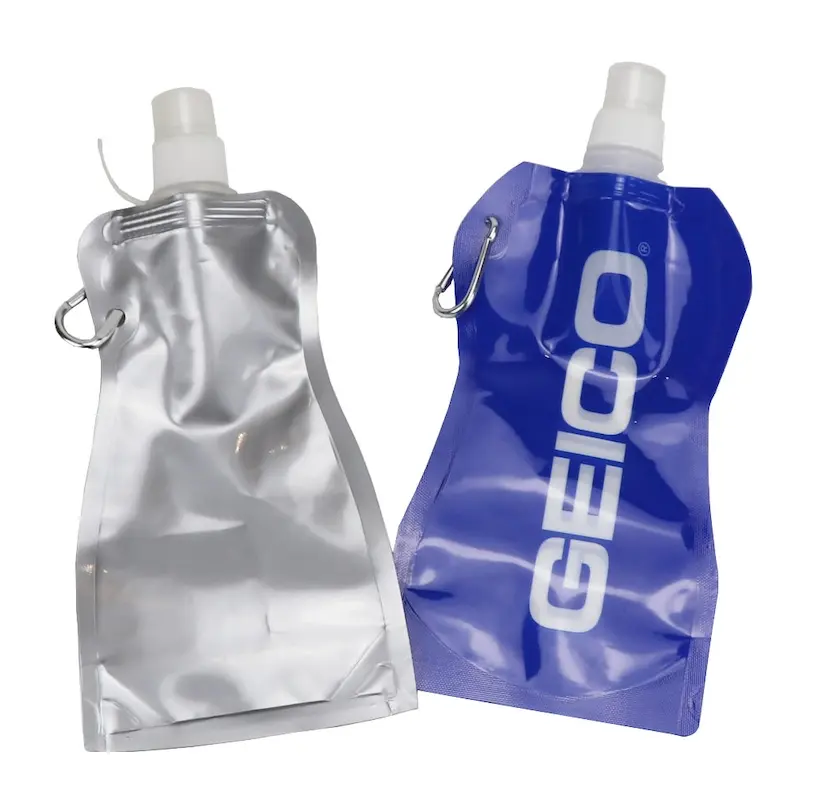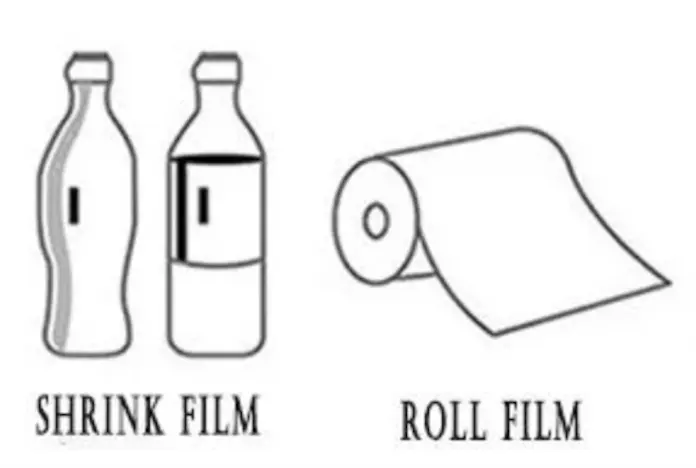WeChat:
+86-189 7322 3283
What’s app::
+86-13630093256
Content Menu
● Why the World Needs Biodegradable Pouches
● Materials Behind Biodegradable Pouches
>> PBAT (Polybutylene Adipate Terephthalate)
>> Compostable Films and Laminates
● Customization and Design Flexibility
>> Pouch Types and Configurations
● Performance and Shelf Life Considerations
>> Heat Resistance and Sealing
● Applications Across Industries
>> Cosmetics and Personal Care
>> Pharmaceuticals and Supplements
>> Pet Food and Animal Nutrition
>> E-Commerce and Subscription Boxes
● Sustainability Certifications and Compliance
● The Role of OEM Manufacturing in Scaling Biodegradable Pouches
● Challenges and Misconceptions About Biodegradable Pouches
>> Industrial vs. Home Composting
● The Future of Biodegradable Pouches
● Why Choose Xinshunheng Industrial Co., Ltd.?
● FAQs About Biodegradable Pouches
>> What are biodegradable pouches made of?
>> How long do biodegradable pouches take to decompose?
>> Can biodegradable pouches be recycled with regular plastic?
>> Are biodegradable pouches suitable for food packaging?
>> Does Xinshunheng offer custom printing on biodegradable pouches?
>> What certifications do Xinshunheng’s biodegradable pouches have?
>> Can biodegradable pouches be used for liquids?
This article explores the science, benefits, applications, and future of biodegradable pouches, highlighting how Xinshunheng Industrial Co., Ltd. is empowering global partners to transition toward sustainable packaging without compromising on functionality or aesthetics.

The global packaging industry produces over 300 million tons of plastic annually, with flexible packaging accounting for a significant share. Traditional plastic pouches, while lightweight and cost-effective, contribute heavily to pollution, especially in marine ecosystems. As awareness grows, governments and corporations are taking action. The European Union’s Single-Use Plastics Directive, Canada’s plastic ban, and similar policies in Asia and North America are accelerating the shift toward sustainable alternatives.
Biodegradable pouches offer a viable alternative by decomposing into water, carbon dioxide, and biomass within months under proper conditions. This contrasts sharply with conventional plastics, which can take up to 500 years to degrade. The demand for biodegradable pouches is no longer niche—it’s a strategic imperative for brands aiming to meet ESG (Environmental, Social, and Governance) goals and appeal to eco-conscious consumers.
Xinshunheng Industrial Co., Ltd. recognizes this shift and has invested heavily in R&D to develop biodegradable pouches that match or exceed the performance of traditional plastics. Their solutions are certified by international bodies such as TÜV Austria (OK Compost INDUSTRIAL), BPI (Biodegradable Products Institute), and DIN CERTCO, ensuring compliance with global compostability standards.
The effectiveness of biodegradable pouches depends on the materials used. Xinshunheng Industrial Co., Ltd. utilizes a range of bio-based and compostable polymers to create high-quality biodegradable pouches tailored to specific applications.
Derived from renewable resources like corn starch or sugarcane, PLA is one of the most widely used materials in biodegradable pouches. It offers excellent clarity, printability, and stiffness, making it ideal for retail packaging. PLA-based biodegradable pouches are compostable in industrial facilities and are commonly used for dry foods, snacks, and cosmetics.
PBAT is a biodegradable copolymer that provides flexibility and toughness. When blended with PLA or starch, it enhances the durability of biodegradable pouches, making them suitable for heavier or moisture-prone products. PBAT-based biodegradable pouches are particularly effective for packaging fresh produce, pet food, and frozen items.
Xinshunheng Industrial Co., Ltd. also produces multi-layer biodegradable pouches using compostable films such as cellulose and polylactic acid laminates. These advanced structures offer superior barrier properties against oxygen, moisture, and UV light—critical for preserving product freshness and extending shelf life.
By combining these materials, Xinshunheng ensures that its biodegradable pouches are not only environmentally friendly but also functional across diverse supply chains and climates.
One of the key advantages of working with Xinshunheng Industrial Co., Ltd. is the ability to customize biodegradable pouches to meet exact brand specifications. Whether it’s size, shape, closure type, or printing, the company offers end-to-end OEM solutions.
Xinshunheng manufactures a wide range of biodegradable pouches, including:
– Stand-up pouches with resealable zippers
– Flat-bottom pouches for stability
– Spout pouches for liquids and powders
– Gusseted pouches for bulkier items
– Quad-seal and three-side seal pouches for premium presentation
Each design is engineered for optimal performance, whether it’s stacking efficiency, ease of filling, or consumer convenience.
High-quality printing is essential for brand recognition and shelf impact. Xinshunheng supports up to 10-color gravure and flexographic printing on biodegradable pouches, ensuring vibrant graphics and precise color matching. Matte, gloss, and soft-touch finishes are available to enhance tactile appeal.
Brands can also incorporate QR codes, sustainability certifications, and educational messaging on their biodegradable pouches to engage environmentally aware consumers.
A common misconception is that biodegradable pouches sacrifice performance for sustainability. However, modern advancements have closed this gap significantly. Xinshunheng Industrial Co., Ltd. ensures that its biodegradable pouches meet rigorous performance benchmarks.
Effective packaging must protect contents from moisture, oxygen, and light. Xinshunheng’s biodegradable pouches are engineered with multi-layer laminates that provide excellent barrier protection. For instance, PLA/PBAT blends with cellulose coatings can achieve moisture vapor transmission rates (MVTR) comparable to low-density polyethylene (LDPE).
Many biodegradable pouches are designed for hot-fill applications or require heat sealing during production. Xinshunheng’s formulations ensure reliable sealing at standard temperatures and maintain integrity during pasteurization or retort processes.
While biodegradable pouches are designed to break down in composting environments, they remain stable during normal storage conditions. Xinshunheng recommends storing biodegradable pouches in cool, dry places away from direct sunlight to maximize shelf life—typically 12 to 24 months depending on formulation.
The versatility of biodegradable pouches makes them suitable for a wide array of industries. Xinshunheng Industrial Co., Ltd. serves clients in multiple sectors, tailoring biodegradable pouches to meet specific regulatory and functional requirements.
From organic snacks to coffee and tea, biodegradable pouches are ideal for food packaging. They preserve freshness while aligning with clean-label and zero-waste trends. Xinshunheng’s biodegradable pouches are FDA-compliant and safe for direct food contact.
Luxury skincare brands are increasingly adopting biodegradable pouches for serums, creams, and travel-sized products. The elegant finish and eco-friendly credentials enhance brand image and appeal to sustainability-driven consumers.
For vitamins, probiotics, and single-dose medications, biodegradable pouches offer tamper-evident, child-resistant, and moisture-protective packaging. Xinshunheng ensures compliance with ISO 13485 and other medical packaging standards.
Pet owners are just as concerned about sustainability. Biodegradable pouches for dry and wet pet food reduce environmental guilt while maintaining product quality.
With the rise of direct-to-consumer models, biodegradable pouches are being used in subscription services for everything from meal kits to beauty products. Their lightweight nature reduces shipping costs and carbon footprint.
To build trust and ensure authenticity, Xinshunheng Industrial Co., Ltd. obtains third-party certifications for its biodegradable pouches. These include:
– OK Compost INDUSTRIAL (TÜV Austria)
– BPI Certification (USA)
– DIN CERTCO (Germany)
– EN 13432 (European Standard for Packaging Recovery)
– ASTM D6400 (Standard Specification for Compostable Plastics)
These certifications verify that the biodegradable pouches will fully decompose in industrial composting facilities within 180 days, leaving no toxic residues.
Xinshunheng also provides full material traceability and lifecycle assessments (LCA) upon request, helping brands communicate their sustainability journey transparently.
As demand for biodegradable pouches grows, brands need reliable manufacturing partners who can scale production without compromising quality. Xinshunheng Industrial Co., Ltd. operates state-of-the-art facilities in China with automated production lines capable of producing millions of biodegradable pouches monthly.
The company offers:
– Low minimum order quantities (MOQs) for startups and SMEs
– Fast turnaround times for urgent campaigns
– Full OEM/ODM support from design to delivery
– Quality control per ISO 9001 standards
By partnering with Xinshunheng, brands gain access to cost-effective, scalable solutions that accelerate time-to-market for their biodegradable pouches.
Despite their benefits, biodegradable pouches face several challenges and misconceptions that must be addressed.
Most biodegradable pouches require industrial composting facilities with controlled temperature, humidity, and microbial activity. They may not break down effectively in home compost bins or natural environments. Xinshunheng educates clients on proper disposal methods and advocates for improved waste infrastructure.
Currently, biodegradable pouches are more expensive than conventional plastic due to raw material costs and lower economies of scale. However, prices are decreasing as production scales and technology improves. Xinshunheng offers competitive pricing through efficient manufacturing and bulk production.
Some companies falsely claim their packaging is “biodegradable” without certification. Xinshunheng combats greenwashing by providing verifiable documentation and promoting transparency in labeling.
If biodegradable pouches enter conventional plastic recycling streams, they can contaminate the batch. Xinshunheng recommends clear labeling and consumer education to prevent mis-sorting.
The future of biodegradable pouches is bright, driven by innovation, regulation, and shifting consumer behavior. Xinshunheng Industrial Co., Ltd. is investing in next-generation materials such as:
– PHA (Polyhydroxyalkanoates): Marine-degradable biopolymers produced by microbial fermentation
– Starch Blends: Enhanced with natural fibers for improved strength
– Edible Films: For single-serve applications in food and pharma
Additionally, the company is exploring digital watermarks and smart labels to improve sorting and composting efficiency.
As global plastic treaties gain momentum, such as the UN’s Global Plastics Treaty, the demand for biodegradable pouches will only increase. Xinshunheng is positioning itself as a long-term partner for brands committed to circular economy principles.
Xinshunheng Industrial Co., Ltd. stands out in the biodegradable pouches market for several reasons:
– Proven Expertise: Over a decade of experience in sustainable packaging
– Global Reach: Clients in Europe, North America, Australia, and Asia
– Innovation-Driven: Continuous R&D in biopolymers and manufacturing techniques
– Customer-Centric: Tailored solutions with responsive support
– Ethical Manufacturing: Fair labor practices and environmental stewardship
By choosing Xinshunheng, brands gain more than just biodegradable pouches—they gain a strategic partner in sustainability.

Biodegradable pouches are typically made from plant-based polymers such as PLA (polylactic acid), PBAT (polybutylene adipate terephthalate), and starch blends. These materials break down naturally in industrial composting facilities.
Under industrial composting conditions (58°C, high humidity, microbial activity), biodegradable pouches decompose within 90 to 180 days, meeting standards like EN 13432 and ASTM D6400.
No. Biodegradable pouches should not be mixed with conventional plastic recycling as they can contaminate the stream. They should be composted in certified industrial facilities.
Yes. Xinshunheng’s biodegradable pouches are FDA-compliant and safe for direct food contact. They are used for snacks, coffee, tea, pet food, and more.
Yes. Xinshunheng provides full-color printing (up to 10 colors) on biodegradable pouches using eco-friendly inks. Custom shapes, sizes, and closures are also available.
Xinshunheng’s biodegradable pouches are certified by TÜV Austria (OK Compost INDUSTRIAL), BPI, DIN CERTCO, and comply with EN 13432 and ASTM D6400 standards.
Yes. Spout pouches and laminated biodegradable pouches with enhanced barrier properties are suitable for liquids such as sauces, beverages, and liquid detergents.
Hot Tags: China, Global, OEM, private label, manufacturers, factory, suppliers, manufacturing company